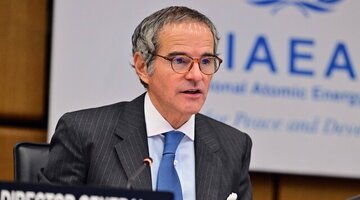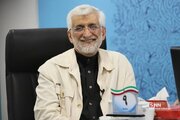The new round of nuclear talks between Iran and P5+1, the permanent members of the United Nations Security Council plus Germany, are due to take place on April 13, 2012. Successful and sustained nuclear talks require the two parties involved taking initial confidence-building measures. One workable solution is to focus on preserving the “minimalist” and “common” interests of both parties in the regional political-security issues. The impasse which emerged in the last round of negotiations in January 2011 was mainly due to the different perspectives of Iran and the P5+1 on the Agenda of the negotiations. With a “minimalist” approach, the P5+1 wanted the talks to merely focus on the nuclear issue. The group’s policy, dominated by the American approach, was to put comprehensive pressure to halt uranium enrichment on Iran’s soil, a matter that would be a weakening point for Iran during the talks.
In contrast, Iran, with a “maximalist” approach, wanted to conduct the talks in a broader context of preserving comprehensive security, along with bringing up some regional issues, which would be Iran’s point of strength and advantage for creating equal terms during the talks. In this context, during all previous talks, Iran brought up regional subjects such as mutual cooperation for solving regional crises, battling regional extremism and terrorism, and comprehensive nuclear disarmament in the region.
But the reality is that successful and sustained talks should consider both above-mentioned dimensions, giving both negotiating parties the equivalent weight. Beyond legal, technical, and nuclear proliferation aspects that the P5+1 is currently focusing on, Iran’s nuclear program is also related to the issue of comprehensive security and political-security matters in the region. Therefore, ignoring the geostrategic and regional aspect of the program by the P5+1 negotiators is itself an overlook to the existing realities thus an impediment to the promotion of the talks.
Iran and the P5+1 have common interests in three significant regional issues. First, minimalist participation of the Taliban in the Afghan future government. The issue of negotiating with the Taliban has become a challenge for all P5+1 members involved in the Afghanistan crisis. Although the Taliban is anti-Iranian and anti-Shiite and Iran’s cooperation with the U.S. in overthrowing this group in 2001 was aimed at removing it from Afghan politics, Iran doesn’t have a fundamental disagreement with a managed Taliban with the least participatory role in the government. At this point, Iran, the U.S. and other P5+1 members’ common interests converge. The two sides have another common interests and that is to avoid the extremist elements in the Pakistan’s government to instrumentally use the increased role of this group to influence Afghan politics in future. Second, solving the Syrian crisis. Given its regional aspects and implications, solving the Syrian crisis requires advancing mutual cooperation at the regional and international level. Here, Iran, Russia, and China (and Turkey) emphasize on the “regional solution”, that is, solving the crisis in the context of the regional interests and not the Western one. In contrast, the Western group comprised of the U.S., the EU, Arab conservative regimes, and Israel seek to replace the Asad regime with a Western-oriented one. With a minimalist approach, the common interests of both parties can be preserved as: putting pressures on the Asad regime in doing meaningful and immediate changes according to the existing regional realities in return for giving assurances by the West in not politically and possibly militarily intervening in Syrian affairs. In this context, the two sides can cooperate to hold an international conference at the state level in order to find an actual solution for ending the crisis.
Third, is comprehensive nuclear disarmament in the Middle East. Given its regional security dimension, Iran and the P5+1 member have a common interest in working together for realizing the idea of a zone without nuclear weapons. Since it is a strategic and national security matter, this is the only subject that Iran would be ready to talk with its main rival and enemy, the U.S. and Israel. The point of common interest here is working again on a minimalist approach and taking actual modest steps in order to put pressure on Israel to withdraw from its nuclear “opacity” strategy, renouncing the use of nuclear weapons, signing the Non-Proliferation Treaty, and gradually entering the process of nuclear disarmament. From this perspective, the geo-strategic dimension of Iran’s nuclear program can balance the process of Israel’s nuclear disarmament, a way toward the idea of “regional zero”, and the West withdrawing from its double standards in this regard, thereby preparing the grounds for establishing comprehensive security and sustained peace. Unlike some Western views that perceive that Iran’s main goal in broadening the nuclear negotiations agenda is to buy time and avoid serious talks, Iran is interested in solving the issue provided it is assured that the negotiations will continue in a win-win context. Iran may be under intense economic pressure, but still has upper hand in regional political-security issues. In this context, Iran is interested to play a constructive role in solving the regional issues in return for settling its strategic discrepancies especially its nuclear issue with the Western powers.
The P5+1 emphasis on restricting the negotiations agenda on merely the nuclear issue would itself result in the weakening and subsequently stopping the negotiations. Sustained nuclear talks should also consider the geo-strategic and political-security dimension of Iran’s nuclear program. Time has come that the P5+1 by broadening the talks agenda and stressing the common interests of both sides on regional issues provide the initial confidence-building grounds for entering sustained talks.













نظر شما